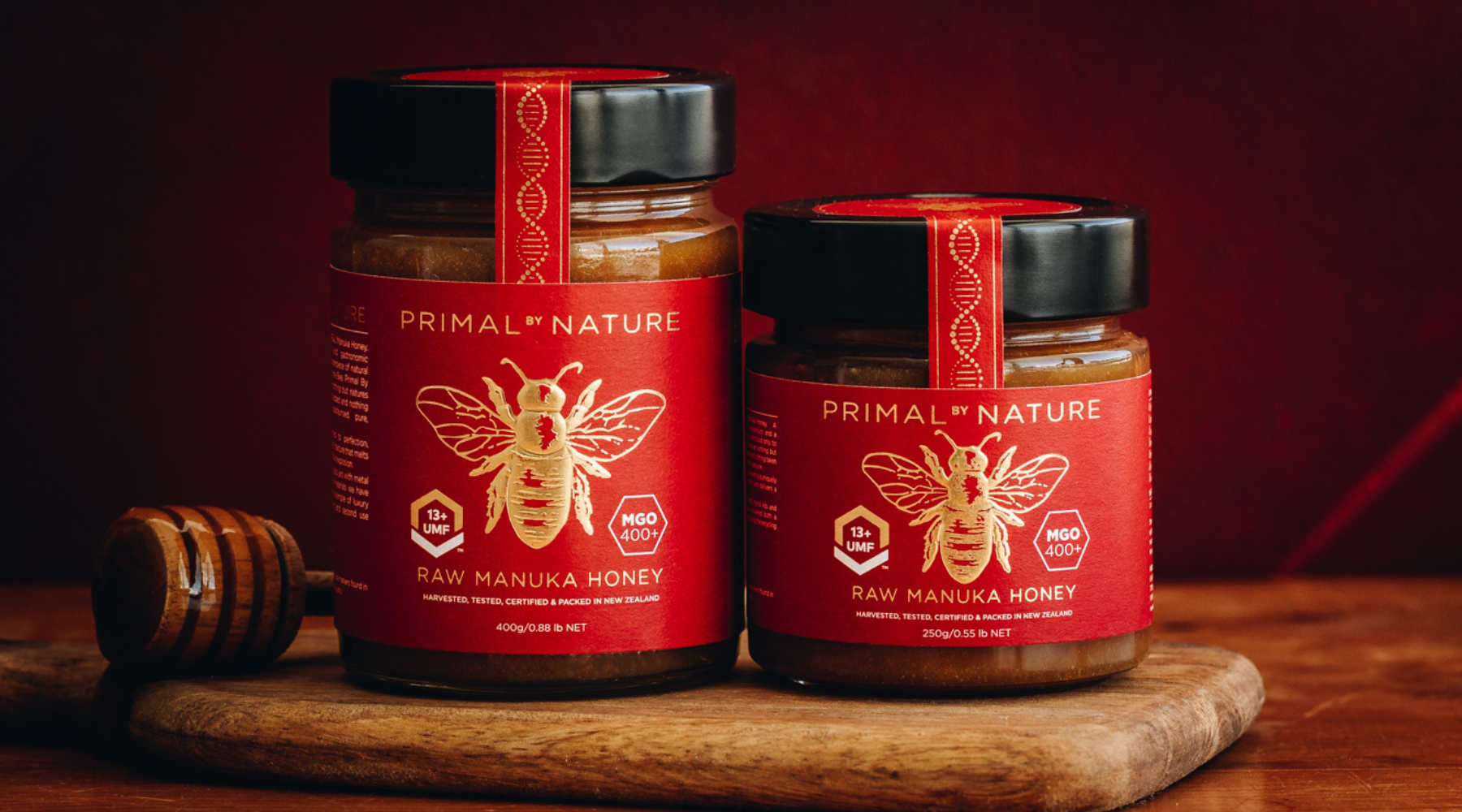Mānuka honey is a true gem in the world of natural foods, known for its unique taste and remarkable well-being benefits. Sourced from the nectar of the mānuka tree (Leptospermum scoparium), native to New Zealand, this honey is celebrated worldwide for its unique properties.
But what makes mānuka honey so special, and how is it used in culinary traditions across the globe? Let’s dive into the sweet world of mānuka honey and discover its role in different culinary cultures, exploring how this natural product has found a place in kitchens from the Middle East to Asia and beyond.
What Makes Manuka Honey Special?
First, let's discuss why mānuka honey stands out from other types. The secret lies in a compound called methylglyoxal (MGO), which gives mānuka honey its powerful properties. This makes it not only a delicious sweetener but also a well-being booster.
Manuka Honey in New Zealand
In New Zealand, where pure mānuka honey originates, it’s more than just a sweet treat—it's a part of the culture. The indigenous Māori people have used mānuka for centuries for its unique properties. In the kitchen, New Zealanders often use mānuka honey in baking, adding it to cakes and bread for a rich, earthy flavour. It’s also a favourite in marinades for meat and fish, bringing a sweet and slightly tangy note that enhances the natural flavours of the food.
Manuka Honey in Middle Eastern Cuisine
Moving over to the Middle East, where culinary traditions are rich and varied 100% New Zealand mānuka honey has found a unique place. Middle Eastern cuisine is known for its use of sweet and savoury flavours together, and mānuka honey fits right in. It's used in desserts like baklava, where the honey's distinctive taste pairs beautifully with the nuts and pastry. In addition, mānuka honey is often drizzled over yogurt and fruit, creating a simple yet luxurious dish that's both nutritious and delicious.
Manuka Honey in Asian Cooking
In Asia, particularly in countries like China and Japan, UMF™ mānuka honey is appreciated for both its flavour and its well-being benefits. In Chinese cuisine, it's common to find mānuka honey used in traditional remedies, often mixed with ginger and lemon to make soothing teas. This combination is especially popular during the cold months, helping to ward off colds and flu.
Japanese cuisine, known for its emphasis on natural and high-quality ingredients, also embraces mānuka honey. It's used in various dishes, from salad dressings to glazes for grilled fish. The honey’s complex flavour complements the umami taste that is so central to Japanese food.
Manuka Honey in Western Cooking
In Western countries like the United States and Europe, mānuka honey has become a popular ingredient in health-conscious kitchens. It's often added to smoothies and health drinks, providing a natural sweetness without the need for processed sugar. In baking, mānuka honey adds a depth of flavour to cookies, muffins, and bread. Many chefs also use it in gourmet dishes, where it can elevate the taste of a simple dish with its rich, complex profile.
Manuka Honey in Drinks
Beyond food, genuine mānuka honey has made its mark in the world of beverages. In the Middle East, it’s added to tea and coffee, offering a natural sweetness that pairs well with the robust flavours of these drinks. In the West, mānuka honey is a popular addition to smoothies and health shots, often combined with ingredients like turmeric and ginger to boost the immune system.
In Asia, mānuka honey is used in traditional herbal drinks, believed to enhance the health benefits of the herbs. It's also common in cold drinks, mixed with lemon and ice water, for a refreshing and healthy beverage.
Sourcing of Manuka Honey
One of the great things about mānuka honey is that it's a product of nature, and ethical sourcing is a key aspect of its production. Beekeepers in New Zealand take great care to ensure that their practices are environmentally friendly. This means protecting the mānuka forests and ensuring that the bees are healthy and thriving. By choosing mānuka honey, you're not only getting a high-quality product but also supporting ethical practices that protect our planet.
How to Incorporate Manuka Honey into Your Diet
Incorporating monofloral mānuka honey into your diet is easy and can add a delicious and healthy twist to many dishes. Here are a few simple ideas:
- Breakfast: Drizzle mānuka honey over your morning oatmeal or yogurt for a naturally sweet start to the day.
- Smoothies: Add a spoonful of mānuka honey to your favourite smoothie recipe for added flavour and well-being benefits.
- Salads: Use mānuka honey in salad dressings to add a touch of sweetness and depth of flavour.
- Marinades: Create a marinade for chicken or fish using mānuka honey, soy sauce, and ginger.
- Tea: Stir mānuka honey into your tea instead of sugar for a healthier sweetener.
How Manuka Honey is Used Around the World
Mānuka honey is more than just a sweetener; it's a versatile ingredient with a rich history and numerous health benefits. Its unique flavour and properties make it a valuable addition to kitchens around the world. Whether you're in New Zealand, the Middle East, Asia, or the West, there are countless ways to enjoy Mānuka honey in your culinary creations.
By choosing Primal by Nature Mānuka honey, you're not only treating yourself to a delicious and healthy product but also supporting sustainable practices that benefit our environment. So why not give it a try? Whether you're drizzling it over your breakfast, mixing it into a smoothie, or using it in a marinade, Mānuka honey is sure to bring a touch of natural goodness to your meals.
Click here to explore and shop the award-winning range of Primal by Nature Mānuka honey.





